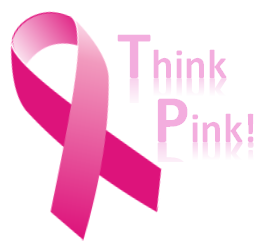Annual Breast Cancer Awareness Month

October 31, 2017
More than 249,000 people in the United States are diagnosed with invasive breast cancer every year, and nearly 41,000 die from the disease. Every year, the month of October is dedicated to breast cancer awareness.
Many people believe that breast cancer’s main cause is genetic mutations passed down from one’s family, but surprisingly, only five to ten percent of breast cancers are linked to genetic mutations. The most common gene mutations linked to breast cancer are BRCA1 and BRCA2.
The scientific cause of breast cancer is still unknown, but the following traits increase someone’s risk of developing breast cancer:
- Obesity
- Older age
- Family history of breast cancer
- Inherited genetic mutations
- Radiation exposure to one’s chest as a child or young adult
- Beginning menopause at an older age
- Giving birth for the first time after the age of 35
- Taking hormone therapy that combines estrogen and progesterone
Even if someone has no family history, their risk of getting breast cancer over their lifetime is about 12 percent.
October 20th was National Mammography Day. Mammograms are used by doctors to detect breast cancer. It is recommended for women to start getting them done in their early 40s. According to their health and age, women are encouraged to get mammograms done at appropriate time intervals even if the feedback is positive. The doctor reading the patient’s mammogram will be looking for different types of breast changes such as small white spots called calcifications, lumps or tumors called masses, and other suspicious areas that could be signs of cancer.
Breast Cancer awareness is not just about knowing what causes it, how to look for it, and what the patients go through after their diagnosis. It’s also about being self aware and doing things for oneself to insure a healthy life. There’s not one thing that can stop someone from getting breast cancer, but the following can all be beneficial to maintaining a healthy lifestyle:
- A healthy diet rich in fruits and vegetables that contain antioxidants and cancer-fighting nutrients
- Exercising regularly
- Minimizing alcohol to one drink or less a day
- Maintaining a healthy weight.
Clements students are supporting Breast Cancer victims by hosting a pink out every Wednesday of October and on football and volleyball game days.






